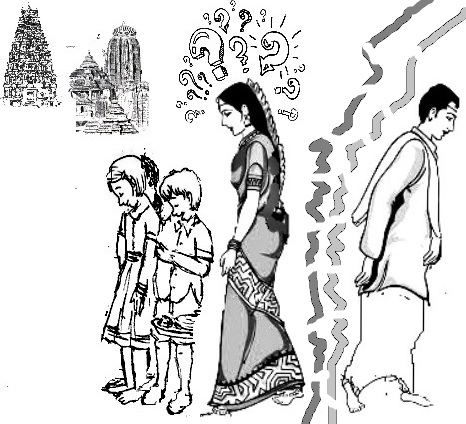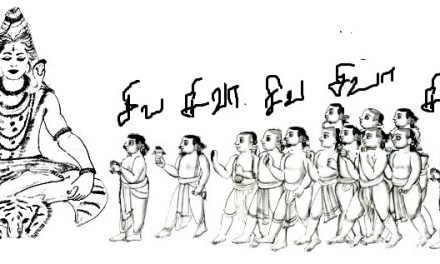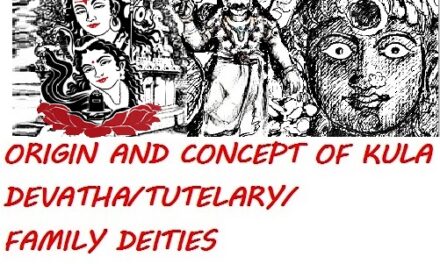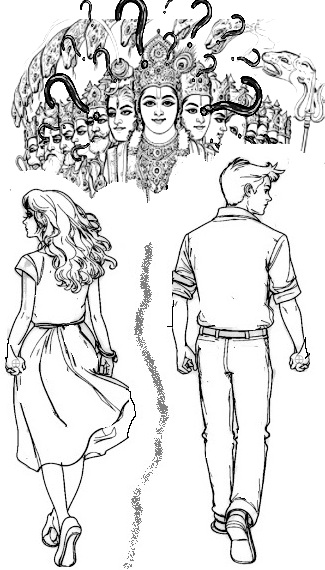
Family deity of Divorced woman and her Children
-Santhipriya-
Since I frequently publish in-depth essays on family deity (Kulatheivam) after consulting with a number of pundits in the temples and spiritual scholars, a woman in recent years asked me a crucial question. Since many of us share the same uncertainty, her question has been answered based on what is stated in the shastras and old customs.
Her question was: –
According to the Shastra, as soon as the nuptial knot is tied in marriage, the woman is obligated to perform worship of her husband’s family deity in each of the events and functions held in her husband’s home from then on.
•For whatever reason, the couple gets divorced after a few years of marriage and the birth of a few children. When the couple separates after divorce, will the divorced woman continue to worship divorced husband’s family deity or the family deity of her parents or she can choose a newer deity as her family deity?
•What about their offspring, who might choose to live either with their mother or with their father?
According to the scriptures, it is prime duty of the parents to raise up and guide their children, especially on the worship of family deities during significant occasions and rituals. The scriptures state that parents have a primary responsibility of educating their offspring, the importance
of worshiping the family deity as worshipped by the
previous thirteen generations in each and every significant occasion and ritual. Male or female, the children born to a parent is related by blood to them, hence, the children born to a parent are bound to accept parents as their primary divine. There is a proverb ‘Mother and father are the first known Gods’ to the children. Therefore, for the children, adoration of the family deity or any other deities comes only after their parents, who stand out to be the first divine to them; at the same time, it is essential that they adhere to the advice of parents, especially in respect of worshiping their family deities.
Whether married or unmarried, while the male members of the family are bound by the worship of the family deity of previous thirteen generations of their parent’s side, the worship of the family deity for the female lasts only till they get married, and once they get married the worship of family deity changes.
Female: worship of Family/Family deity
Why would the scriptures prescribe that a female worships the family deity of her parents’ just until she is married and once married, she begins to worship the family deity of her husband? The answer rests in knowing how weddings have evolved throughout history and continue to be practiced today, albeit in a slightly modified form to accommodate modern circumstances. Since the Vedic time, marriages have been performed as a religious rite in the presence of the sacred fire Agni, who continues to be the principal witness to the bride and groom’s vows.
The family deities of both the bride and groom are also present in an invisible form. Once the bride’s father turns over his daughter to his son-in-law, the groom then holds the bride’s hand and recites mantras that include pledges to look after her well.
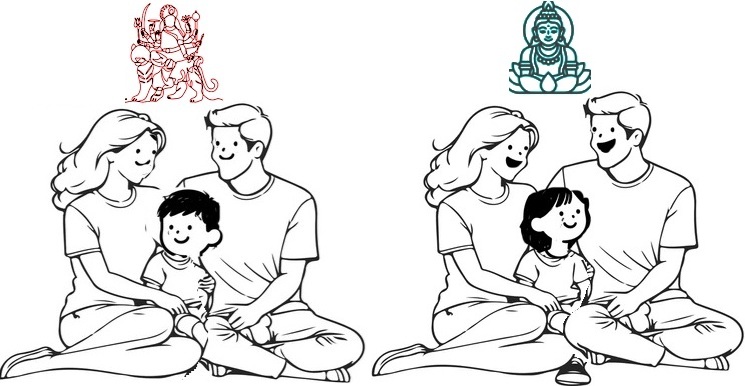
Two different family deities of Bride and Groom. Here for clarity,
we assumed it as ‘Brides side family deity’ and ‘Groom’s side family deity’
After the groom ties the wedding pendant around the bride’s neck, the pair circumambulate the sacred fire (Agni) several times and recite specific chants of mantras. At the end of the rites, they complete the marriage ceremony. Once the the marriage ceremony concludes the family deity of the bride transfers the rights to protect her well-being to the family deity of her husband, as the divine rule prescribes. Both family deities stand together, invisible to the onlookers, to witness the marriage and to exchange the rights of governance over the bride at their divine level.

The established divine law states that as the bride enters her husband’s home after tying the nuptial knot, her gothra transforms to that of her husband, and she becomes a part of him, comparable to Shiva + Sakthi. This is why, once the nuptial knot is tied, she is obligated to worship the husband’s family deity, who has sole jurisdiction over her, as established by the Shastras. Following the marriage, the female loses the right to perform major worship to her parental side’s family deity, as she is bound to offer first oblation and prayers only to the family deity of her husband’s side on all significant occasions and rituals, as she is Goddess Parvathi, part of her husband, who is Lord Shiva.
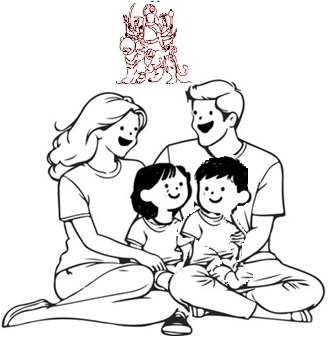
After marriage, the female becomes part of her husband’s
family and hence as per the shastras, she has to accept
their family deity as hers.
Acceptance of the husband’s family deity by the married female is based on the scriptures and shastras, and also endorsed by the family deities of both sides, who witnessed their marriage. The situation is exactly similar to how one becomes a citizen of another country, forfeiting the citizenship of his mother country.
She is free to worship any other deity, including the family deity of her parents, even after getting married. There is only one restriction on this kind of worship. Her husband’s family god is to be offered foremost in her daily prayers, following Lord Ganesha.
After then, she can pray to whichever god she wants to worship or to the family deity on her parents’ side, if she so chooses.
Now the question arises, after few years of marriage, the couple decides to part ways and get divorced. What happens then in the pattern of worship?
Who is the family deity of a female who gets divorced?
One fundamental thing to keep in mind is that, even if a woman marries and moves into her husband’s house to join their family, her bond with the family deity of her paternal side does not end, nor does it also imply that the parental family deity has distanced from her.
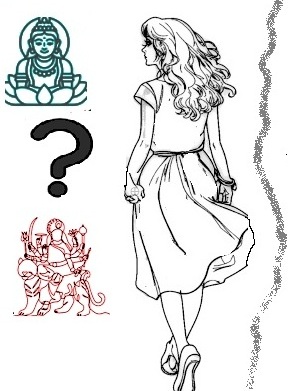
Whether a woman is single, married, or divorced, the family deity of the parental side is also her everlasting deity. If she regrettably separates from her husband and goes back to her parents, the doors of the paternal side family deity are always open to welcome her back into its fold. According to the Parabrahman norm, the parent’s family deity has the authority to mentor and protect the divorced woman until she remarries.
Therefore, after divorce the female gets back the right to worship parental side family deity as her principal deity till her remarriage. If she remains unmarried after divorce, she will continue to worship only her parental side family deity in all occasions and rituals. If she gets remarried, again her worship switches to the new husband’s family deity.
Who is the family deity of the children of divorced?
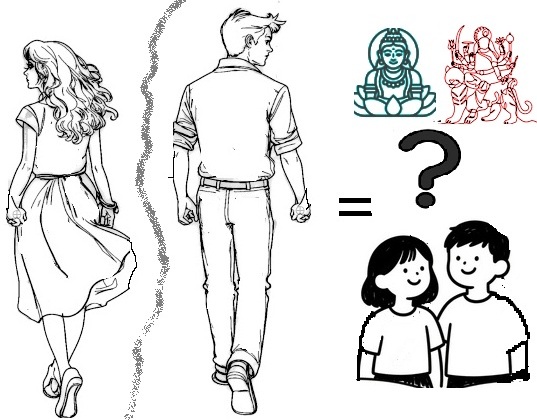
According to Shastras and Hindu tradition, children, both sons and daughters (before marriage) born to a married couple, primarily follow father’s family deity (Kula devata), as they are considered part of his gotra and lineage. This applies even to the children of the divorced couple whose children are bound to the family deity of only father’s side, whether or not they stayed with mother of father after divorce.
Hence the male child of even the divorced couple will have to keep worshiping father’s family deity and female as usual worship father’s family deity till she is unmarried and adapts the husband’s side family deity once married.

